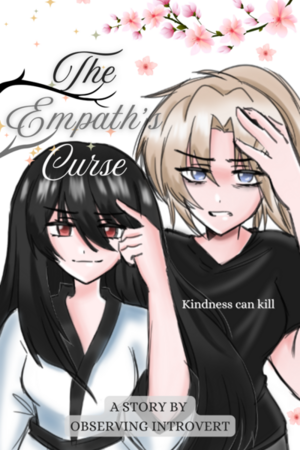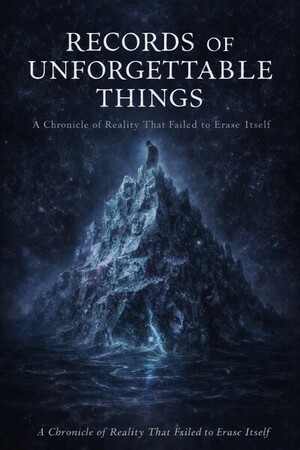Chapter 2:
When Science discovered Magic
The Aftermath of the Magic Apocalypse
Lunch comes along and I go to meet Grandpa. He’s not really my grandpa, but he dotes on me like I was his granddaughter. We first met when he came to visit the orphanage I grew up in for a special guest lecture. I was the only kid in the group who seemed to share his passion for the scientific aspects of magic. Over the years, he would let me work in the lab with him and he became my mentor.
Maybe it is because he’s at that age where he wants to pass on his knowledge and he hasn’t found a suitable successor and I just happen to fit the bill. Or maybe I remind him of his daughter who was a victim of World War V that ended 25 years ago; which left humanity at not even 10% of its peak population of 12 billion during the golden age that followed when science finally had proven the existence of magic beyond a shadow of a doubt. He’s taught me so much over the years ever since we first met, and when I was finally able to work, he let me come work with him. I’m really lucky I found a field of work I enjoy and I owe it to him
“Hi Grandpa” as I sit to join him at a table in the company cafeteria.
“Mana! Today I want to revisit the origins of magic to see if we can come up with another angle to see if maybe we missed something at a fundamental level.” He smiles warmly to greet me.
“Sure, but wouldn’t it be better to discuss this with other scientists?” I can’t imagine I would contribute something as helpful compared to our experts who have looked at this more often.
“They get tired of an old man's ramblings. They think I should already be retired and enjoying life, but still, there is so much about magic we just don’t understand. Perhaps it will be the untainted young ones who will solve some of the questions, one day. After all, if our foundation isn’t sound, anything we build on top of it will not last.” he says as he shrugs.
“From what I remember, a little over 200 years ago, mankind engaged in World War III. in the year 2077, relations between opposing sides deteriorated to the point all sides invoked their nuclear arsenals on each other. At that moment, many thought the world would meet its end. But a miracle happened, the nuclear weaponry had converted into an aurora borealis that encircled the planet like a protective membrane. The one who claimed responsibility had left us a message; ‘Oh ye foolish children, you have forgotten your roots. Your foolish arrogance in the sciences have led you astray into an ignorance that surpasses the height of foolery. This miracle of magic is possible for humans, do not neglect your other half!’”
“Yes, the phenomena witnessed back then, bringing an end to WWIII was what we later recognized as magic. This created quite the controversy in the scientific and theological communities. Many believed what we witnessed was the work of advanced hyper-technology, others argued this was a miracle of God, and some were thinking this was a spell at the level of a grand-order at work. Ultimately, it took about 10 years after the event to discover the irrefutable proof of magic, where magic power can only be witnessed by activating magic power from another source. The key clue was in the final phrase of the message, do not neglect our other half, so if science was one half, what would be our other half?” says the professor as he at me.
“Hmmm” as I ponder. “I guess if science were one half, maybe art would be the other half?”
“Hoho, a very good answer. If we use the left-brain, right-brain theory that was proposed in the 20th century, logic and facts which serve as the basis of science would the left side. The right side is the imagination and creativity mankind possesses, so it stands to reason magic be in that domain. Up until the era of magic, the hard sciences would typically rebuke the soft sciences like psychology and sociology that typically specialized in studying this side, because there were no prevailing theories that would always be applicable to everyone. But finally, the science of magic had started to turn the tide, when we finally found evidence of a magic molecule, or magicule.”
“As I understand, magicules, the basis of phenomena that are magical in nature only become observable in reaction to magic power. Once the magic flow has stopped, the magicule is no longer observable or detectable by most instruments.” as I think back on what I remember. I had studied magic, but because I am unable to use magic, I only know the theory.
“Yes, this property reminded us of the classic dilemma, which came first, the chicken or the egg? Since magicules require magic power to be detectable, and we don’t know how exactly to activate magic power, how do we actually prove if magic power was real? It was a historian who happened to be obsessed with dead languages along with his wife who was a psychologist and happened to understand enough of spell casting that gave us the fundamental discovery to our modern understanding of magic. Through their demonstration, using the husband's dead language of sorcery, and her knowledge of spell casting, the magicule was able to be publicly observed from the magic residue left behind of the spell. Subsequent experiments, although not all were successful were able to undeniably prove magic power was a real, observable phenomena. This led to a race for magic research, where all kinds of theory were tested around the world.” grandpa excitedly carries on.
“It’s kinda strange that even two centuries later, we still can’t use precise mathematical models and logic to completely decode magic. The best we have is circuit theory to explain magic flow and that is just at the basic individual level” as I recall the basics of magic theory
“Yes, go on Mana.”
“Well, from what I recall, magic power flows through the body similar to electric current in a circuit. To activate a spell, the magic caster channels that magic to the part of the body that would release the spell, much like current flowing from a battery to a light source. But even though we have that theory, we still have many unanswered questions. Why some humans can’t use magic at all? Why are women naturally superior to men in using magic? If we have two individuals of similar knowledge and ability, why does the same spell incantation have vastly different results even when they chant it exactly under the same conditions?” as I look to him to answer.
“Indeed, but that model can help us make an educated guess to those questions, which is why it is the prevailing model for magic theory. Since we know the electric current won’t flow if a power source is dead, perhaps the source is absent or non-functional in the humans who can’t perform magic. Or perhaps, it becomes similar to an open circuit, and the power source is insufficient. Studies on activating magic power have taught us the highest success chance of activating magic in a person is right in their pre-teen years, so the majority of magic instructors typically focus at that age range to help a person activate their magic. It gets exceedingly more difficult in adults. It is possible with younger children, more often than not, the child’s body seems unable to properly contain the magic energy. As a result, most children suffer debilitating effects that require extensive medical care.
Women are interesting, perhaps their bodies are more conducive to magic than men. It could be the hormone estrogen plays a key role that we haven’t figured out. Or perhaps their bodies are simply more conducive for magic flow. And can you venture a guess on why two people under the same conditions can have very different results casting the same spell?"
"Well, since the magic power they release is proportional to the caster's attributes, even though they appear to be the same, they actually aren't?" as I tilt my head and look back.
“Yes, there is a lot we just don't truly understand about how magic works inside a person. Considering we wasted 75 years of the last 210 years on not one, but two pointless global wars, it’s not surprising. Global conflict is the worst hindrance to humanity’s progress! Sure we may get amazing inventions in the short term, but the greatest contributions to our history usually take place when we can feel safe and secure in our society, allowing the most people the opportunity to contribute to the greater good. It’s even possible if we didn’t have the abomination of the witch trials during the late 16th century that plagued North America and Europe until the mid 18th century, we might have found conclusive evidence of magic much sooner than just 200 years ago!" How different would our world have been if we had five or even seven centuries of magic history instead of just two?” as the professor sighs in depression.
Having never experienced the horror of war personally, I can’t imagine how tragic the scene was, but the professor himself lived through World War V and lost his family to the war. In fact, many senior employees of the company were once refugees or soldiers who didn’t have a home or a family to return to after the war came to an end. The firm put as many to work as it possibly could to help get what remained of civilization back up and running as soon as possible. Much of the world as we enjoy today is thanks to the efforts of the corporate leadership cooperating with local governments around the world to get a sense of normalcy. The devastating war that lasted a quarter of a century; claimed the lives of over three billion lives over its course, reducing our total global population to just about one billion. The idea that only one out of every four people I knew could be gone; or the idea we could all be wiped out if another war started is enough of a reason for me to do everything I can to ensure our company and our research on magic serves as an effective deterrent for any future conflict.
“Say grandpa, since the root of the right brain is human emotion, how strong does that play a role in magic?”
“Hohoho, the fact that you asked that is a strong indicator you may advance the field of research one day.” as he grins in glee. “Psychometrics, Magnetic Resonance Imagery, Personality Assessments, no matter what method science has tried cannot get a precise read on the human heart. If we are to really to advance the science of magic, I believe it will indeed be someone like you who is genuinely curious that will figure this out”
“But grandpa, I can’t use magic” as I pout.
“I can’t use magic myself anymore, but that didn’t stop me from conducting research that became the foundation of understanding magic systems. If we can really figure out how exactly human emotion factors into magic output, perhaps our understanding of magic will improve by leaps and bounds!”
We talk for quite a bit more about magic theory while I ask myself if grandpa's belief in my ability to really contribute to the field of magic research is possible when I can't use magic. Only time will tell, but I do hope he is right.




Please sign in to leave a comment.